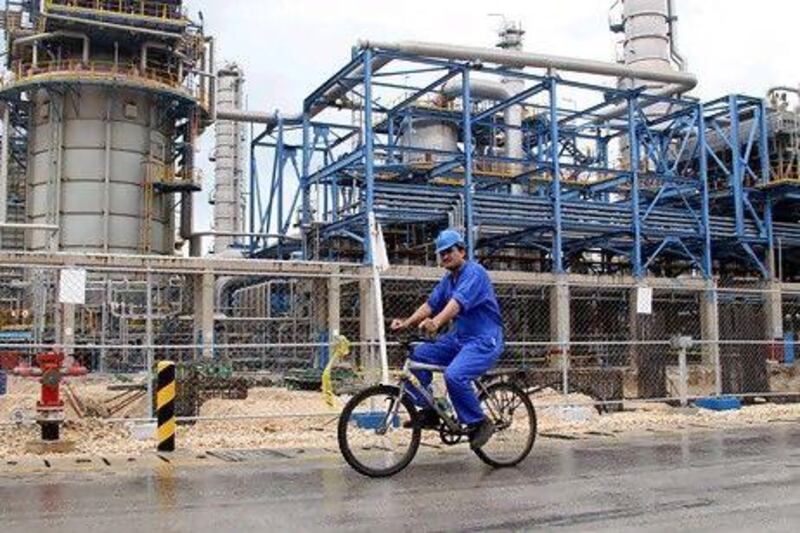It is the exception that proves the rule. The likely exemption of a BP gas project, in which Iran holds a stake, from recent US and EU sanctions shows how western energy policy suffers from being turned to political ends.
Naftiran Intertrade Company (Nico), a unit of Iran's national oil company, holds 10 per cent in Azerbaijan's Shah Deniz gasfield, the cornerstone of plans to export Azeri gas via Turkey to Europe to reduce dependence on Russia.
"Our sanctions policy should impose maximum economic pain on the Iranians without allowing Russia to hold Eastern Europe hostage for energy," a senior US congressional aide noted. Therefore, after strenuous European lobbying, legislation is likely to exempt Azerbaijan gas exports.
The longer-term policies of the US and, more recently, Europe towards Iran have been driven by political imperatives. Yet their focus on the militarily and economically negligible Islamic Republic has damaged their energy security and that of Asian allies, while being very favourable for Russia and the GCC.
Iran has the world's second-largest gas reserves, after Russia, yet it is a net importer of gas. It is the natural anchor for Middle East pipelines to Europe which would compete with Russia. It is best-placed to send gas to energy-starved Pakistan and India, but the US has instead promoted an alternative from reclusive Turkmenistan through war-torn Afghanistan.
Finally, Iran is the easiest transit route for central Asian oil and gas to world markets. But through the 1990s, Washington sponsored a longer pipeline from Azerbaijan to the Mediterranean. Though the Baku-Tbilisi-Ceyhan line was a success in itself, it has not led to more export routes, and Russia's 2008 war with Georgia highlighted its vulnerability.
Sanctions on Iran have combined with its own mismanagement to hamper its petroleum industry severely. In the 1970s, when Arab countries embargoed the US, the Shah's government increased output to more than 6 million barrels per day. Now production limps along at little more than half that.
When the US oil company Conoco agreed a contract in 1995 to develop Iran's Sirri A and E oilfields, Bill Clinton, then the US president, ordered it to withdraw. More recently, European oil companies, including Shell, Total and ENI, also left the country.
Combined with earlier sanctions on Iraq and Libya, the result has been to eliminate plausible Opec competitors to Saudi Arabia and its Gulf allies. In contrast with the cut-throat competition that prevailed up to 1998, Opec's production restraint so far this century has pushed oil prices to record highs. While both the GCC and Russia have enjoyed a tremendous windfall, costly energy has hampered economic growth in developed countries.
Meanwhile, without Iranian competition, Qatar was able to become the world's largest liquefied natural gas exporter and establish dominant positions in European and Asian markets.
The Iranians have also failed to use their energy resources strategically. Had they not negotiated interminably on unattractive terms, they could have attracted multi billion-dollar European, Russian and Chinese investments. Becoming the key alternative gas supplier to the EU and Asia would have made them much harder to sanction, and would have left US oil companies clamouring to be allowed in as well.
Sanctions might appear to be a cost-free alternative to war. But whatever minor tweaks are made to them, over the long term they erode global energy security - and may have cost the US alone half a trillion dollars in higher energy costs over the past decade. No administration, whether in Washington, Brussels or Tehran, has been able to create a "Nixon in China" moment, realign global energy alliances and turn the tables on Russia and Riyadh. The Gulf should be grateful for this. It may not endure forever.
Robin Mills is the head of consulting at Manaar Energy, and author of The Myth of the Oil Crisis and Capturing Carbon





